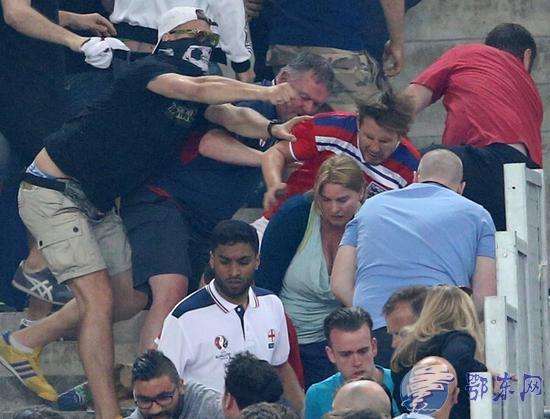Title: Managing Conflict During the UEFA European Championship
Conflict during the UEFA European Championship, or any major sporting event, can pose significant challenges. Whether it's between fans, teams, or even nations, resolving conflicts swiftly and effectively is crucial to maintaining safety and preserving the spirit of the game. Here's a comprehensive guide on how to manage conflicts during the European Championship:
1. Prevention through Planning:
Risk Assessment:
Before the event, conduct a thorough risk assessment to identify potential conflict hotspots, such as rival fan zones or historical tensions between teams.
Communication:
Establish clear lines of communication between organizers, security personnel, law enforcement agencies, and relevant stakeholders to ensure a coordinated response in case of emergencies.

Fan Engagement:
Promote positive fan behavior through education campaigns, emphasizing respect, tolerance, and sportsmanship. Encourage fans to celebrate responsibly and peacefully.
2. Robust Security Measures:
Presence of Law Enforcement:
Increase the visibility of law enforcement officials both inside and outside the stadiums to deter potential troublemakers and swiftly intervene in case of disturbances.
Surveillance Systems:
Implement advanced surveillance systems, including CCTV cameras and facial recognition technology, to monitor crowd movements and identify individuals involved in disruptive behavior.
Access Control:
Tighten access control measures at stadium entrances to prevent unauthorized entry and minimize the risk of clashes between rival fans.
3. Mediation and Conflict Resolution:
Trained Mediators:
Deploy trained mediators or conflict resolution teams equipped to deescalate tensions and resolve disputes peacefully. These teams should be culturally sensitive and able to communicate in multiple languages.
Designated Safe Zones:
Establish designated safe zones within stadiums where individuals can seek refuge during conflicts. These zones should be staffed with trained personnel capable of providing assistance and support.
4. Rapid Response Protocol:
Emergency Response Plan:
Develop a comprehensive emergency response plan outlining procedures for handling various types of conflicts, including violence, riots, or terrorist threats. Ensure all staff are familiar with their roles and responsibilities.
Coordination with Emergency Services:
Forge partnerships with local emergency services, hospitals, and medical facilities to ensure a prompt and coordinated response to any incidents requiring medical attention or evacuation.
5. PostEvent Evaluation and Learning:
Debriefing Sessions:
Conduct debriefing sessions after each match or event to assess the effectiveness of security measures and identify areas for improvement.
Incident Analysis:
Analyze any conflicts or incidents that occurred during the championship to understand their root causes and develop strategies for preventing similar occurrences in the future.
Continuous Improvement:
Continuously review and update security protocols based on lessons learned from past experiences and emerging threats.
In conclusion, managing conflict during the UEFA European Championship requires a multifaceted approach encompassing prevention, robust security measures, mediation, rapid response protocols, and postevent evaluation. By implementing these strategies effectively, organizers can ensure a safe and enjoyable experience for all participants and spectators, preserving the integrity and spirit of the beautiful game.
Note:
It's essential to tailor these strategies to the specific context and dynamics of each host city and country, considering factors such as cultural norms, political tensions, and previous incidents of violence. Additionally, maintaining open communication channels with relevant stakeholders throughout the planning and execution phases is paramount for successful conflict management.
